-
E-mail
Austin120521@outlook.com -
E-mail
sales@jujiuhouse.com -
Telephone
+86-17864099991 -
Telephone
+86-17854044442
- Chinese
- French
- German
- Portuguese
- Spanish
- Russian
- Japanese
- Korean
- Arabic
- Irish
- Greek
- Turkish
- Italian
- Danish
- Romanian
- Indonesian
- Czech
- Afrikaans
- Swedish
- Polish
- Basque
- Catalan
- Esperanto
- Hindi
- Lao
- Albanian
- Amharic
- Armenian
- Azerbaijani
- Belarusian
- Bengali
- Bosnian
- Bulgarian
- Cebuano
- Chichewa
- Corsican
- Croatian
- Dutch
- Estonian
- Filipino
- Finnish
- Frisian
- Galician
- Georgian
- Gujarati
- Haitian
- Hausa
- Hawaiian
- Hebrew
- Hmong
- Hungarian
- Icelandic
- Igbo
- Javanese
- Kannada
- Kazakh
- Khmer
- Kurdish
- Kyrgyz
- Latin
- Latvian
- Lithuanian
- Luxembou..
- Macedonian
- Malagasy
- Malay
- Malayalam
- Maltese
- Maori
- Marathi
- Mongolian
- Burmese
- Nepali
- Norwegian
- Pashto
- Persian
- Punjabi
- Serbian
- Sesotho
- Sinhala
- Slovak
- Slovenian
- Somali
- Samoan
- Scots Gaelic
- Shona
- Sindhi
- Sundanese
- Swahili
- Tajik
- Tamil
- Telugu
- Thai
- Ukrainian
- Urdu
- Uzbek
- Vietnamese
- Welsh
- Xhosa
- Yiddish
- Yoruba
- Zulu
- Kinyarwanda
- Tatar
- Oriya
- Turkmen
- Uyghur

Buy modern space capsule
The Intricacies of Purchasing a Modern Space Capsule
Exploring the option to buy modern space capsule technology often brings about a swirl of excitement and skepticism. There’s a blend of innovation and ambition, but the real challenge lies in understanding the intricacies involved—from design to deployment.
Understanding Modern Space Capsules
When we talk about a modern space capsule, what exactly are we delving into? These aren't mere vessels; they're masterpieces of engineering, integrating advanced life-support systems, thermal protection, and avionics. The misconception often lies in equating them to simple spacecraft, disregarding the complexity underpinning each component. It's crucial to discern the multiple layers of technology and human factors engineering involved.
Considerations extend beyond just manufacturing. The capsule’s ability to withstand re-entry heat and its precise navigational controls are pivotal. It’s not merely about surviving space but ensuring a safe return. Those new to the field might underestimate how every minute detail, from materials used to fabrication processes, critically impacts performance.
One must also recognize the nuances of collaborating with a supplier. For instance, entities like SpaceX or Boeing don’t just sell capsules—they offer a full ecosystem of support and management, something prospective buyers must evaluate with precision.
From Concept to Reality: Case Studies
Take, for example, the collaboration model adopted by NASA’s Artemis program. Here, cross-collaboration between public and private sectors was key. NASA utilized partnerships with commercial providers to propel technological advancements while sharing the financial burden. This isn’t just methodology; it's a viable strategy to consider for potential buyers.
On a commercial note, look at Shandong Jujiu Integrated Housing Co., Ltd. Although primarily focused on integrated housing, their holistic approach to design, production, and installation can provide lessons in structural ingenuity and cost management. Their expertise in modular construction translates well into the efficiency and adaptability needed in space capsule design. More information can be found on their website: Jujiu House.
Past failures also serve as a rich source of learning. Be it delays or budget overruns, understanding the pitfalls encountered by early adopters provides invaluable insights for future projects. Bundling research insights with practical case analyses often bridges the gap between expectation and reality.
Financial and Operational Considerations
The financial implications of purchasing a modern space capsule are considerable. The investment extends well beyond initial acquisition, involving continuous maintenance, upgrades, and sometimes, unexpected costs. Prospective buyers need a robust financial strategy, accounting not only for current investments but long-term sustainability.
Operational adaptability is another pressing matter. A space capsule isn’t an isolated purchase; it's part of a larger operational framework. Ensuring seamless integration with existing or planned systems can make or break mission success. This is where ingenuity in design plays a critical role—capsules need to accommodate evolving missions, adapting to new challenges efficiently.
Integration demands foresight in planning parallel infrastructure that supports launch, operation, and recovery phases. These logistical considerations are often underestimated, yet they're fundamental in optimizing the lifecycle of a space capsule.
Technical Specifications and Customization
Customization is no longer a luxury but a necessity. Buyers must engage deeply with manufacturers to tailor solutions that precisely align with mission objectives. Each space capsule serves unique functions, whether for cargo, crewed missions, or research, demanding bespoke configurations.
The technical specifications shouldn't merely meet industry standards—they should be forward-compatible with anticipated advancements. This adaptive capacity is what secures an investment over its operational lifespan. A static approach is often the Achilles' heel of technological ventures.
A deep dive into supplier capabilities, like those found on Jujiu House, reveals how integrated design principles ensure flexibility. Their modular approaches in construction exemplify the scalability needed in space applications, where adaptability is king.
Emerging Trends and Innovations
The landscape of modern space capsules is constantly evolving. Emerging trends like autonomous control systems, reusable capsules, and hybrid propulsion are steering the industry towards unprecedented efficiency and capability levels. Staying abreast with these innovations is critical for informed decision-making.
Regular engagement with industry developments—through conferences, collaborations, and publications—provides insights into emerging technological frontiers. AI-driven design and visualization tools are turning once-daunting complexities into manageable tasks, accelerating the path from design to deployment.
Contemplating the purchase of a modern space capsule without a firm grasp on future trajectories might lead to shortsighted decisions. Understanding where technology is headed ensures investments are anchored in long-term viability and adaptability.
Related products
Related products
Best selling products
Best selling products-
 Customized Two Wing Folding Expandable Container House
Customized Two Wing Folding Expandable Container House -
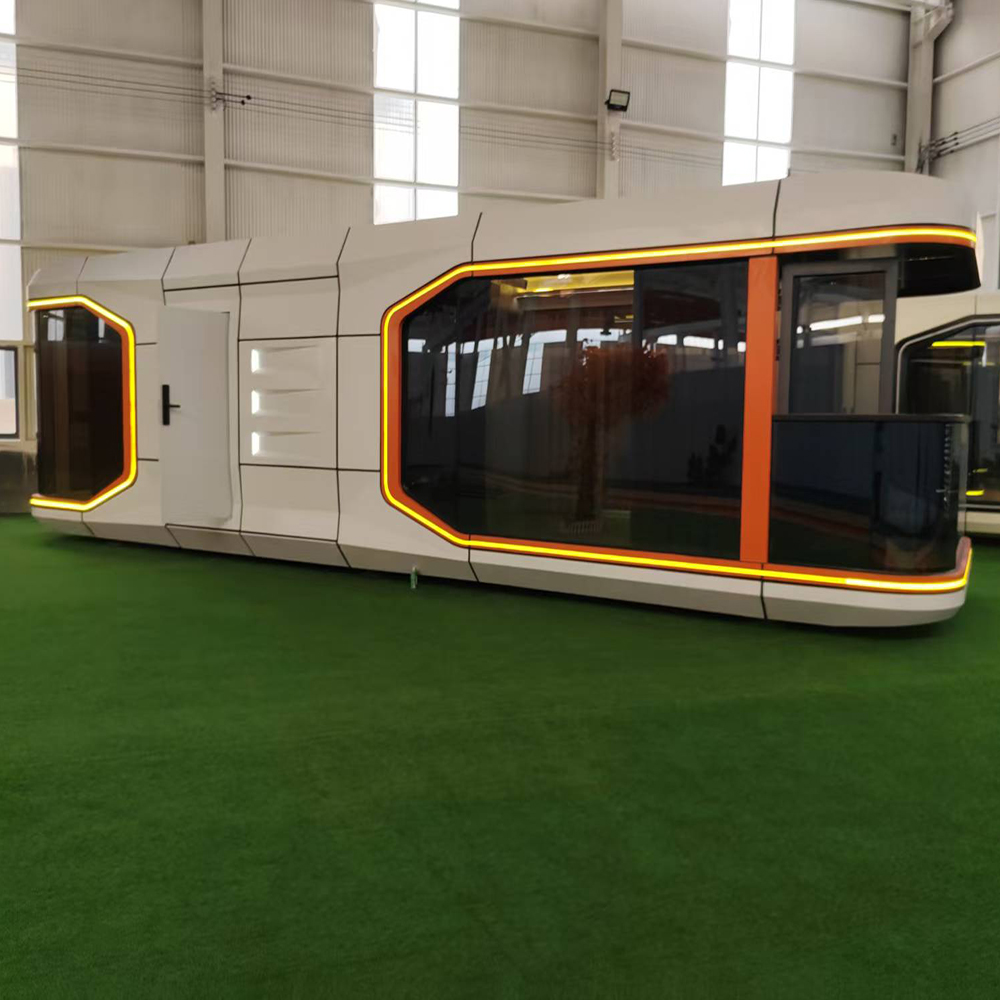 Standard Modern Camping Pod Space Prefabricated Portable Mobile Capsule Room Hotel Bathroom Prefabricated Spaceship House
Standard Modern Camping Pod Space Prefabricated Portable Mobile Capsule Room Hotel Bathroom Prefabricated Spaceship House -
 Detachable Design Prefabricated Container House Portable Modular Office Building Folding Container House
Detachable Design Prefabricated Container House Portable Modular Office Building Folding Container House -
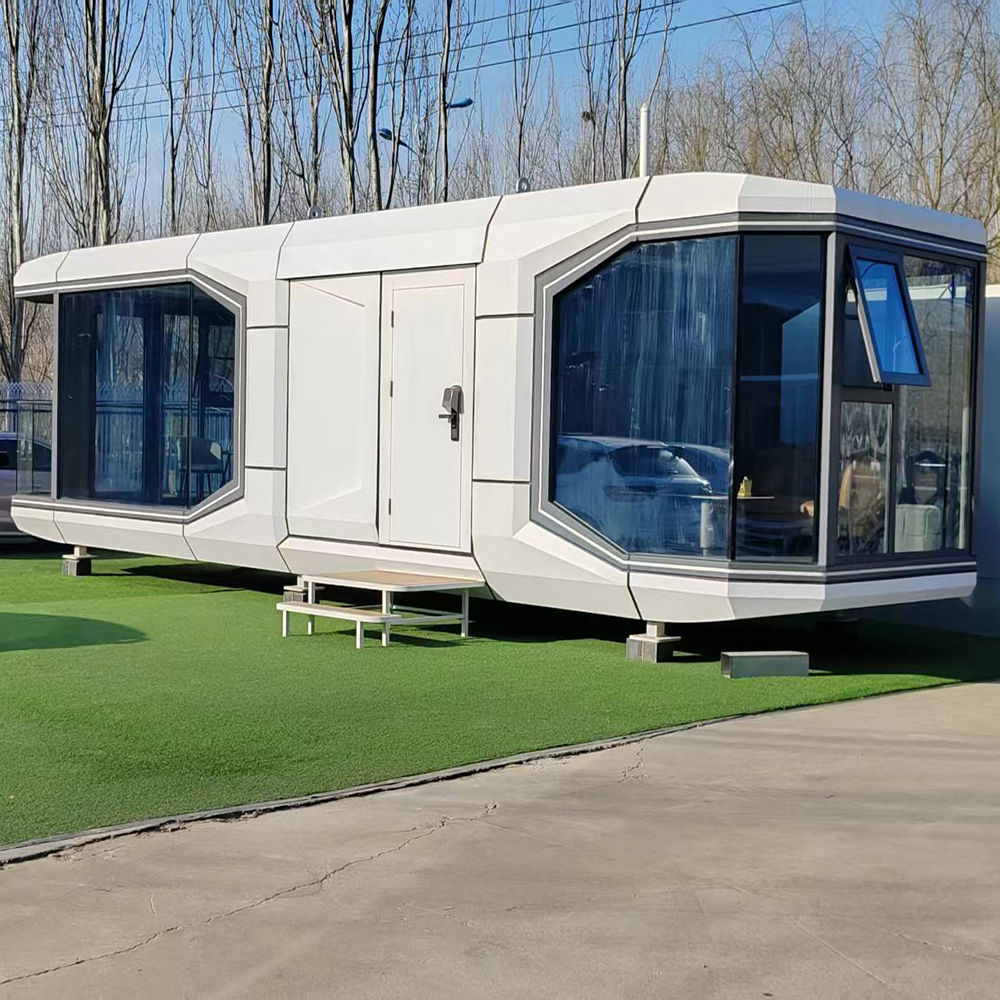 Luxury High Quality 2 Bedroom Container Home Prefabricated Steel Space Capsule for Office Shop Hotel or Outdoor House
Luxury High Quality 2 Bedroom Container Home Prefabricated Steel Space Capsule for Office Shop Hotel or Outdoor House -
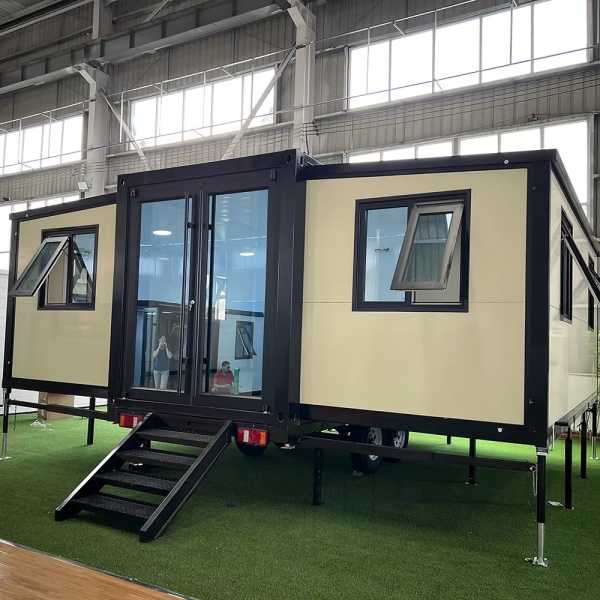 Stair Access Double Wing Expandable Container House | Easy Installation Mobile Office
Stair Access Double Wing Expandable Container House | Easy Installation Mobile Office -
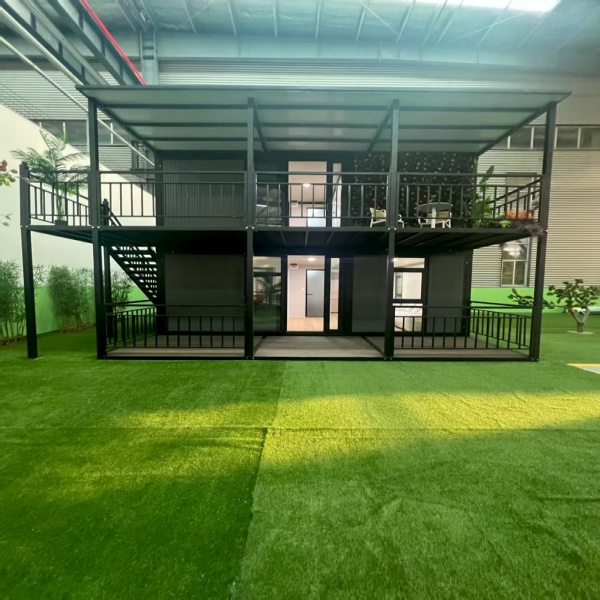 Luxury foldable two-story container houses in luxury resort hotels and villa hotels
Luxury foldable two-story container houses in luxury resort hotels and villa hotels -
 Easy Install Customized Detachable Container Homes Extendable House Prefab 2 Floors Expandable Container House
Easy Install Customized Detachable Container Homes Extendable House Prefab 2 Floors Expandable Container House -
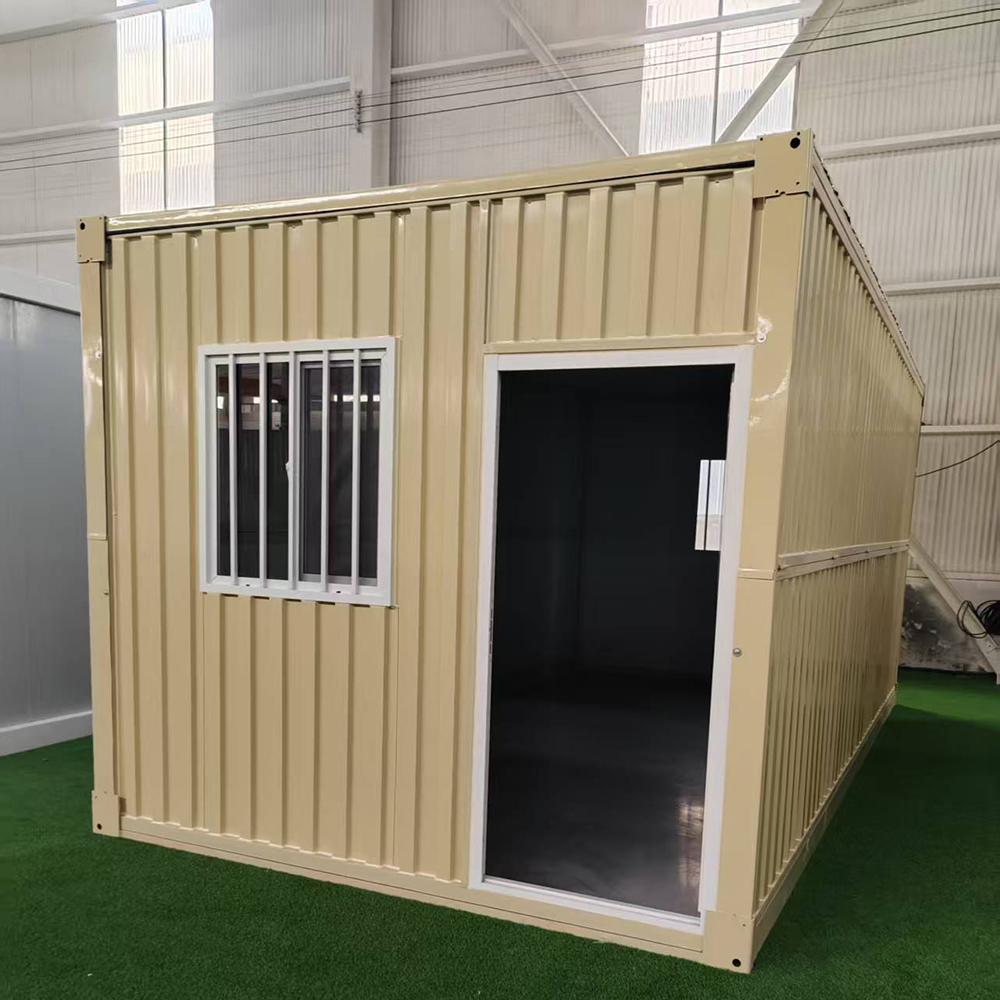 Competitive Price Portable Container House Foldable Container Mobile Living Modular Homes
Competitive Price Portable Container House Foldable Container Mobile Living Modular Homes -
 Dual-Wing Folding Container House: Fast Assembly, Space-Saving & Multi-Scene Adaptable
Dual-Wing Folding Container House: Fast Assembly, Space-Saving & Multi-Scene Adaptable -
 High-quality Double-wing Folding Container House with Doors and Windows, Insulated Walls, Suitable for Various Scenarios.
High-quality Double-wing Folding Container House with Doors and Windows, Insulated Walls, Suitable for Various Scenarios. -
 A container house with a terrace and double-wing folding design, suitable for various purposes such as offices, meeting rooms, living rooms, etc.
A container house with a terrace and double-wing folding design, suitable for various purposes such as offices, meeting rooms, living rooms, etc. -
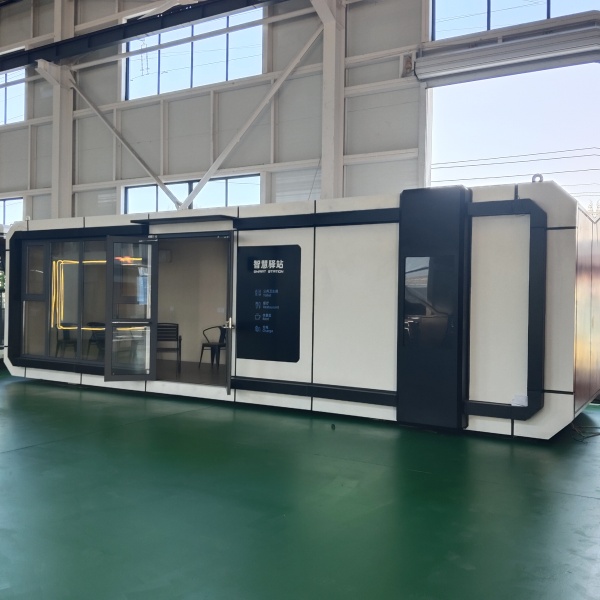 Modular modern movable apple cabins, customized high-end folk houses and portable bedrooms, delivered as a whole
Modular modern movable apple cabins, customized high-end folk houses and portable bedrooms, delivered as a whole
Related search
Related search- Buy foldable prefabricated home
- expanding container house
- Buy fold out houses from boxabl
- China container house
- Buy premade container house
- Buy fold out container homes for sale
- China modular fold out homes
- China container home fold out
- folding container house for sale
- Buy home container house prefab container house luxury expandable container house












